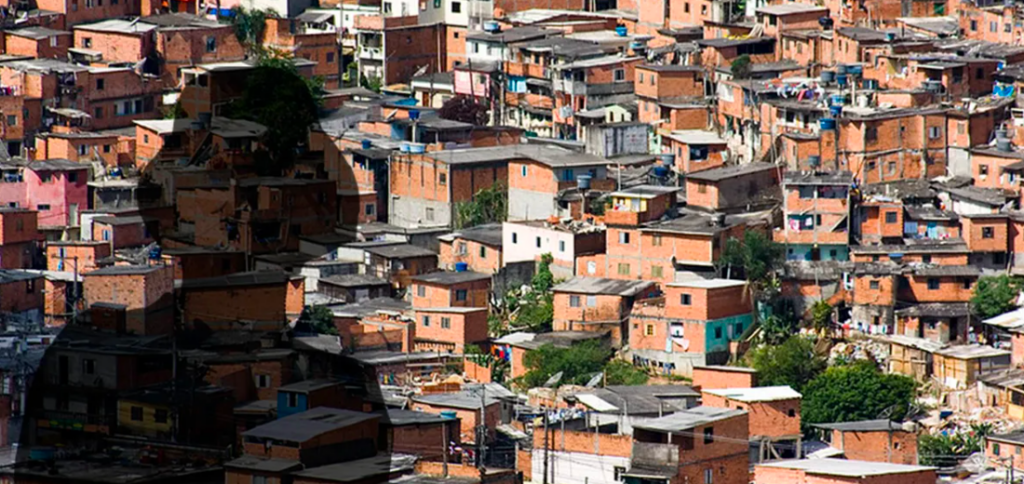Huri Paz is the author of the article Environmental racism and urban mobility in the city of Rio de Janeiro: case study on Perifa Connection, which is part of the sixth edition of the Desafio collection. The Desafio book series is the result of a Cebrap project in partnership with Itaú-Unibanco, which selects researchers to develop original research on the theme of each edition. The sixth edition focused on discussing urban mobility and climate changes. Last Friday (7), a live with the authors of each chapter marked the launch of the book.
ADVERTISING
The term “environmental racism” was coined by activist Benjamin Chavis in the 1980s, during protests for environmental justice in Warren County, in the state of North Carolina, in the United States. The protesters were against the installation of a landfill for toxic waste in a majority territoryariamind black.
“Environmental racism appears as a concept for the first time at the very end of the American apartheid process. Benjamin Chaves' idea was to say how the negative externalities of a waste production model were being directed at black populations. However, this concept is undergoing transformations so that we can interpret other phenomena that are also associated with environmental racism”, explains Huri.
An example of these other phenomena is risk areas, susceptible to floods and landslides. “According to Brazilian literature and black movements, this is also environmental racism. You don't needariamind needs to place a landfill next to the favela so that it suffers environmental racism. But from the moment you have a city and a state that pushes the black population to the outskirts where there is a risk of this happening, you are also causing environmental racism”, says the researcher.
ADVERTISING
He compares the risk of landslides in peripheral areas with the safety of consolidated neighborhoods. “Perdizes is a neighborhood that has many reliefs. But when these summer rains happen in São Paulo, it is not the Perdizes neighborhood that has landslides, that has floods. It's on the outskirts. And the government's big excuse is that these outskirts are very steep and the buildings are precarious. But this demonstrates the lack of political will. If Perdizes can face a storm without any kind of risk to life, why can't we guarantee this in other spaces in the city?”, questiona.
Inequalities in city construction
Huri Paz was one of the five selected for the sixth edition of the Desafio project. For the research in the project, his idea was to start from the theme of urban mobility and climate change to understand the terms of the debate on environmental racism carried out by the black movement, as well as the practical attitudes of activists to face the problem. Focusing on the case of Rio de Janeiro, he chose two organizations to study: Perifa Connection and the Climate and Society Institute (ICS).
Perifa Connection is a training and articulation platform that makes politics from the bottom up. It has high engagement with communities on the outskirts of Rio de Janeiro, participates in the national debate on outskirts and has international projection on the climate issue. Since 2019, the organization has participated in the United Nations Conference on Climate Change (COP). The ICS is a philanthropic entity, which makes policy from the top down, through financial support for projects and institutions aimed at combating climate change.
ADVERTISING
Both organizations understand that environmental racism is a problem to be addressed from a climate change perspective, but their strategies and perspectives are slightly different.. Huri says that, on the issue of urban mobility, the ICS has defended the electrification of the bus fleet. The organization understands that this policy would reduce the air pollution to which peripheral communities are exposed, since it is in these territories that older buses are located, with poor maintenance and higher emissions. greenhouse gases and other pollutants. Perifa Connection works on a different axis, trying to “put the groundwork” for the conversation about climate change.
“We, young black people from the suburbs, die every 23 minutes. If the whales die sooner, they are better off than us”, says Thuane Nascimento, popular organizer and participant in Perifa Connection, interviewed by Huri for the article.
The researcher remembers the case of Vila São João, in Duque de Caxias, Rio de Janeiro. “There is no direct bus, for example, to the beach. There is no direct bus to areas in the city where you could have leisure on the weekends, which would be days when workers could enjoy themselves. Train intervals increase, the number of buses running decreases. For Perifa Connection, this is also environmental racism and has to do with how the city is built in a way that not all people access the same spaces”, says the researcher.
ADVERTISING
From this perspective, Perifa Connection activists carry out training activities with community leaders and seek to influence the public debate about the climate. In the interview with Huri, Thuane strongly criticized the debate held by people attending the COP, considering it “distant, global and unreal”. She does not deny the importance of discussing carbon and the energy matrix, but states that there are more urgent issues that are not discussed, such as access to health and education, the lack of basic sanitation, police violence and the genocide of the population. black.
“Do we have to save Arctic whales? Yes, they are super important. But I don't have time to save the whale because I need to save myself. We, young black people from the suburbs, die every 23 minutes. If the whales die in a longer period of time, they are better off than us”, said Thuane, in the interview with the researcher.
In Huri’s assessment, the perspectives of Perifa Connection and ICS are not conflicting, “but they demonstrate the challenges we have in dealing with the issue of climate change in a society as unequal and violent as Brazil”, he says. .
ADVERTISING
To read Huri Paz's article in full, you can download the book 6 Challenge in PDF on this link.
(Source: USP Journal)
Read also




